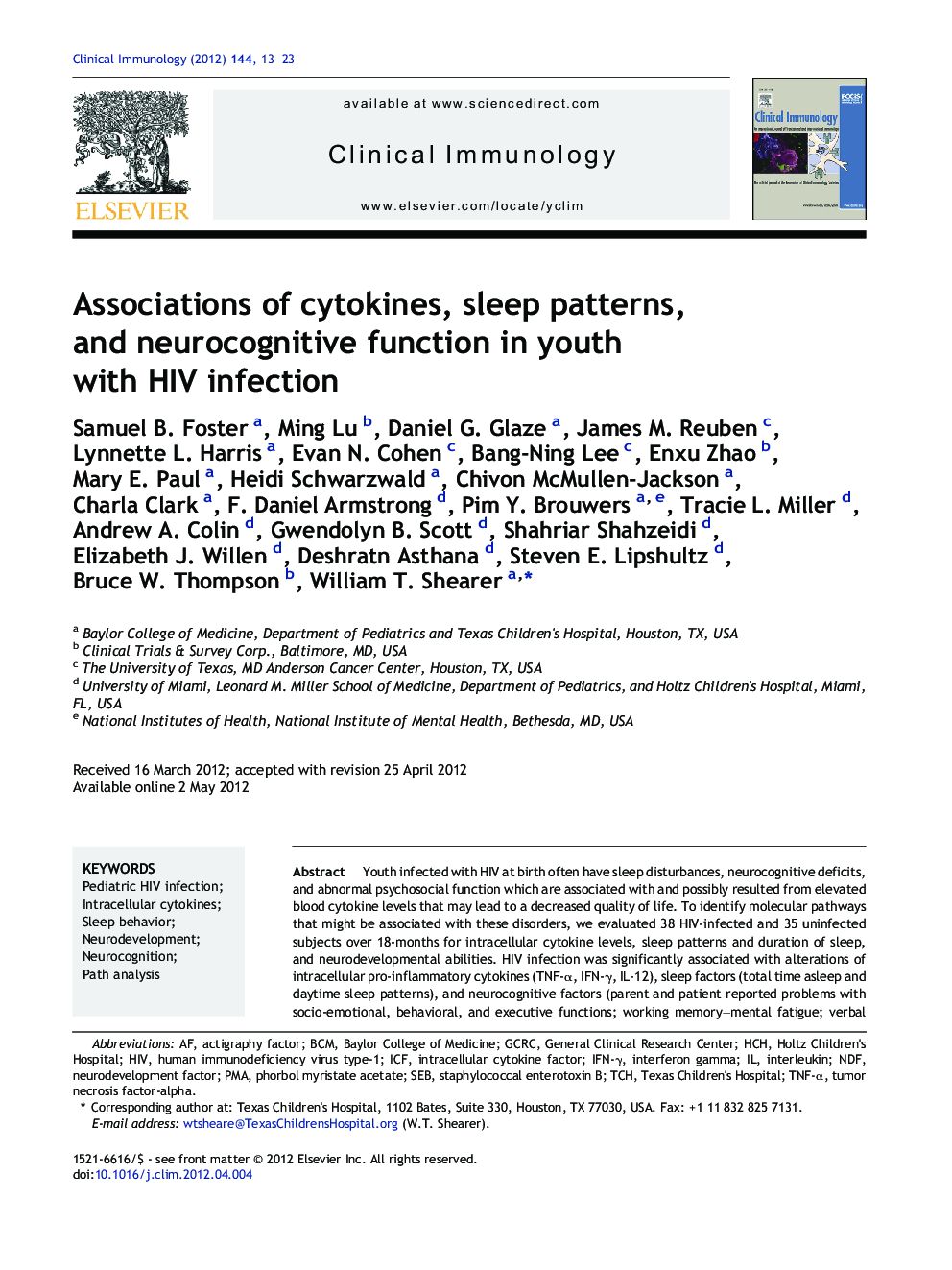| Article ID | Journal | Published Year | Pages | File Type |
|---|---|---|---|---|
| 3257114 | Clinical Immunology | 2012 | 11 Pages |
Youth infected with HIV at birth often have sleep disturbances, neurocognitive deficits, and abnormal psychosocial function which are associated with and possibly resulted from elevated blood cytokine levels that may lead to a decreased quality of life. To identify molecular pathways that might be associated with these disorders, we evaluated 38 HIV-infected and 35 uninfected subjects over 18-months for intracellular cytokine levels, sleep patterns and duration of sleep, and neurodevelopmental abilities. HIV infection was significantly associated with alterations of intracellular pro-inflammatory cytokines (TNF-α, IFN-γ, IL-12), sleep factors (total time asleep and daytime sleep patterns), and neurocognitive factors (parent and patient reported problems with socio-emotional, behavioral, and executive functions; working memory–mental fatigue; verbal memory; and sustained concentration and vigilance. By better defining the relationships between HIV infection, sleep disturbances, and poor psychosocial behavior and neurocognition, it may be possible to provide targeted pharmacologic and procedural interventions to improve these debilitating conditions.
► HIV infection is associated with changes in cytokines, sleep, and neurocognition. ► TNF-α, IFN-γ, and IL-12 appear to impact sleep duration in youth with HIV. ► Youth with HIV infection seem to require more daytime sleep than controls. ► HIV infection, cytokines and increased sleep may worsen neurocognitive measures. ► Adherence to HIV drugs and better sleep habits may be treatment strategies for youth.
